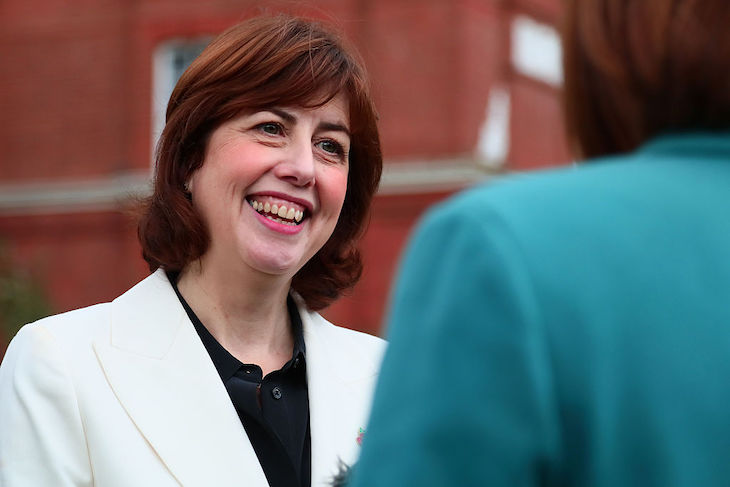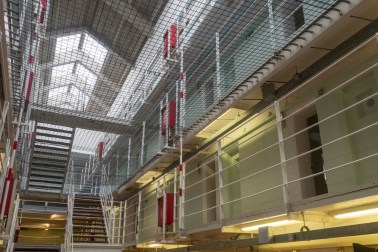Nigel Farage says the NHS ‘isn’t working’ and has suggested the UK adopt a French-style heathcare system. He’s evidently been reading my articles here and here. French healthcare isn’t perfect but compared to the bedlam of what most British politicians refer to as ‘our’ NHS, it’s fabulous. I speak from knowledge. I have experience as a patient in both Britain and France. I know where I’d rather be sick.
Nobody here seems to be waiting 84 hours in an emergency room, as one NHS patient did in Scotland in 2022. When I was unfortunate enough to attend A&E at the Royal Surrey Hospital a few years ago after falling off a horse, the wait was interminable and the toilets were filthy. My complaint was met by an indifferent shrug.
The toilets are sparkling at the Polyclinique Pasteur, 20 minutes from my house in rural Occitanie. I took my wife there a few months ago after she’d broken a small bone in her foot. The wait to see a triage nurse was five minutes. She was in radiology 20 minutes later. She saw a doctor 20 minutes after that, and was discharged just over one hour later. With her French health insurance card, the indispensable Carte Vitale, the co-pay cost was €22 plus €2 for paracetamol.
My own experience has been equally fantastic. Just over a year ago I was feeling exhausted and lethargic. I booked in to see my private Médécin Généraliste at the medical center next to the local supermarket. The phone was answered immediately. I saw her that afternoon. Cost: €7.50. (I pay €40 to take my dog to the vet.)
My doctor sent me to the private medical laboratory in nearby Pézenas for a blood test. The result was sent to her with a copy to me within four hours. The test showed severe hypothyroidism. She phoned and asked me to stop by the surgery where she gave me a prescription for levothyroxine, €6 a month, which effectively restored my thyroid function to normal. She also suggested I get a radiograph to check my thyroid gland for cancer.
Using an app called Doctolib, I was given the choice of three nearby clinics, all of them private. I booked an appointment at the radiology center in Clermont Hérault. Wait time, four days. Arriving at the clinic, I inserted my Carte Vitale into a device that looked like an airport check-in post. At my appointment time of 9 a.m. precisely, a nurse escorted me to the radiology suite where a young consultant manning equipment that looked like a SpaceX control room took an image of my wonky thyroid.
He saw nothing untoward. I left the centre 20 minutes later. I paid €22. His e-rays were emailed to me and my généraliste by lunchtime.
This is insurance-based medical care, in which premiums are paid by employers and a 9 per cent payroll tax. It costs roughly the same as the NHS. The money follows the patient, the patient has choice between public and private providers (all operating to the same tariff), and even the miniscule co-payments can be offset with private insurance, which cannot exclude pre-existing conditions. There are no rainbow lanyards or diversity officers anywhere in sight.
Perhaps I’m just lucky. So I asked my neighbours. And without exception, they are content. Dodo, a retired firefighter who lives opposite, had a myocardial infarction and within 15 minutes a crash team from the local fire station had arrived to stabilise him and 15 minutes after that he was in a yellow helicopter that landed on the village football pitch to take him to the University Hospital in Montpellier. He’s now as fit as ever. I see him running most mornings when I walk the dogs.
Another neighbour, unemployed with long-term health problems, was involved in a nasty accident resulting in a fractured spine. He was hospitalised for weeks, and subsequently visited at home daily by a nurse. He’s much better and it cost him nothing. He has no complaints. A Swedish friend who moved to France from Britain where she had her first child had her second here and describes the difference as akin to being upgraded from economy to business class. And I have heard similar stories again and again.
France is also innovating with the model of private polyclinics and small hospitals covering basic procedures, solutions to the seemingly intractable difficulties of health care delivery. The established university and public hospitals are thus in competition with agile newcomers. Privatisation? Absolutely. Why wouldn’t this work in Britain?
A crucial element in the French system is private provision, provided on the same terms as public hospitals. The Polyclinique Pasteur in our nearby market town of Pézenas is a typical example. Founded by healthcare entrepreneur Lamine Gharbi,a pharmacist by training, his health group, Cap Santé, treated 120,000 patients last year in 18 clinics, including 70,000 patients in its four private emergency rooms. Perhaps some Cap Santés in the UK could help. While there are some one-stop or multispecialty clinics in the UK operated by Bupa and Nuffield Health, they are entirely private and not integrated into the public medicine system as here.
I don’t claim that the French system is entirely without problems
The secret sauce of the polyclinic model is that it’s a community, not a referral hospital, and is vastly smaller than the public and university hospitals which undertake the most difficult procedures. The polyclinic is not the place for open-heart surgery or oncology, but it does have everything most patients need, most of the time, under one roof. The building is clean. The administration is slick and computerised. The medical team of contracted doctors and nurses offers surgery, general medicine, an emergency suite and a ‘hospitalisation at home’ service with a team of itinerant nurses who drive around visiting patients not blocking beds in hospital.
Even in France it’s hard to please everyone all the time. But the polyclinic model, long ago renounced by the NHS which closed cottage hospitals to concentrate on vast, bureaucratic ones, proves that private provision can deliver services to millions of patients without being part of the failed National Health Service.
I don’t claim that the French system is entirely without problems. Some remote parts of the country have a shortage of GPs. The village doctor is disappearing, replaced by more centralised clinics. The elderly who find it hard to get to these are transported there by private ambulances or taxi drivers who have specialised training. There’s certainly room for improvement here. Dental care is definitely a problem made worse because, bizarrely, dental hygienists are illegal in France. Legally, only a qualified dentist is allowed to treat teeth. This is literally bonkers.
There’s not a great deal of difference in average life expectancy between the UK and France – 82.4 years in France versus 81.3 in the UK. As a percentage of GDP, France spends slightly more than the UK. So it could be argued that an underperforming health care system like the NHS isn’t that significant. It’s merely miserable.
Without doubt, those of us who have experienced healthcare in France and Britain will not hesitate to declare that it’s vastly preferable on this side of the Channel. And from what I hear from friends in Spain, Holland, Australia and beyond, this insurance-based model is always superior to the dreadful NHS. The wearisome pleading of NHS fanatics that the only alternative to the NHS is the American system is simply dishonest. A serious debate is years overdue. Throwing more money at it will do nothing to improve ‘our’ NHS.









Comments